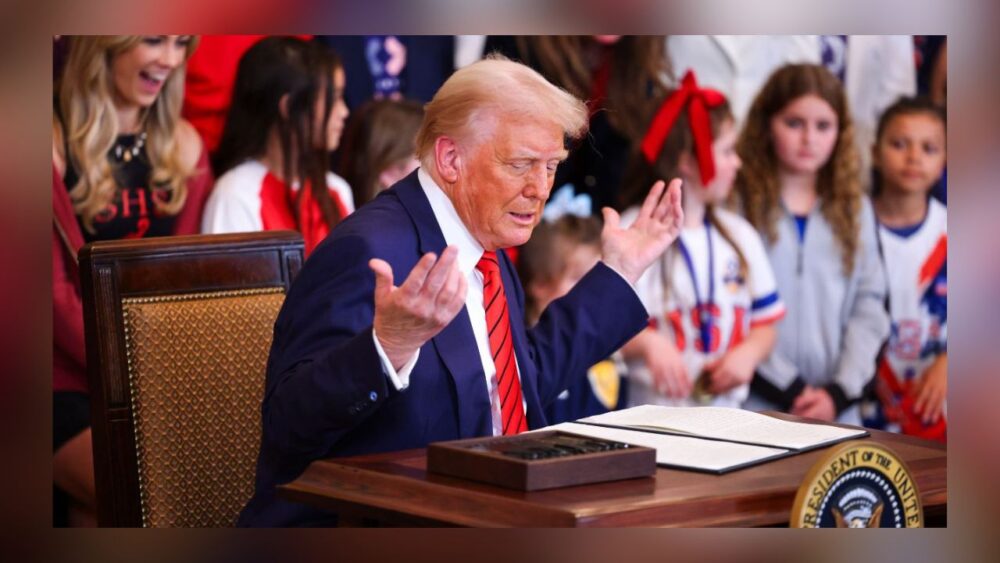President Donald Trump has announced plans to sign an executive order targeting banks that close customer accounts based on “reputational risk,” addressing long-standing conservative allegations of politically motivated discrimination in the financial sector.
The proposed directive would require federal regulators to eliminate guidance allowing such practices and mandate efforts to reinstate clients previously denied services under those policies.
“The banks discriminated against me very badly,” Trump said during a recent event. “They totally discriminate against – I think me maybe even more, but they discriminate against many conservatives.”
Trump has accused institutions such as JPMorgan Chase and Bank of America of refusing his business due to political bias. Both banks have denied closing accounts for political reasons.
“We don’t close accounts for political reasons, and we agree with President Trump that regulatory change is desperately needed,” a JPMorgan spokesperson said.
Industry analysts note that account closures typically stem from compliance obligations tied to anti-money laundering regulations or standard risk management policies. However, some conservative advocacy groups argue that these procedures can be used to justify ideological targeting.
Recent attention has focused on high-profile account closures involving conservative individuals and organizations. Chris Rufo, a conservative commentator, warned about potential consequences for political expression.
“There has been a chilling effect on political speech and association due to financial institutions cutting off access to basic services,” Rufo said.
Groups such as the American Principles Project and several Christian organizations have reported being dropped by major financial institutions. They claim these actions were based on political or religious viewpoints.
Rachel Bovard, a policy expert, said the trend could have broader implications for democratic participation. “If banks are allowed to weaponize access to the financial system, it could fundamentally change the nature of civic participation in America,” Bovard stated.
Michael Seifert, a critic of corporate activism, argued that political discrimination in banking is more widespread than the public realizes. “This isn’t just a fringe issue—if it continues, it sets a dangerous precedent for every American’s access to the financial system,” Seifert said.
Trump’s proposed executive order reflects an early policy initiative aimed at curbing what conservatives describe as ideological overreach in the financial sector. If enacted, the order would direct federal agencies to strengthen oversight while preserving banks’ ability to meet legitimate compliance standards.
Trump is expected to formally sign the executive order on Thursday, August 7.


